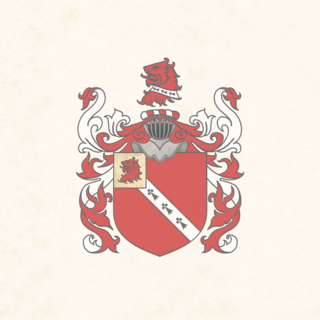
William Huskisson was a British statesman, financier, and Member of Parliament for several constituencies, including Liverpool.

Lieutenant-Colonel Sir John Peniston Milbanke, 10th Baronet, VC was a British Army officer, and a recipient of the Victoria Cross, the highest award for gallantry in the face of the enemy that can be awarded to British and Commonwealth forces.

Siemens Brothers and Company Limited was an electrical engineering design and manufacturing business in London, England. It was first established as a branch in 1858 by a brother of the founder of the German electrical engineering firm Siemens & Halske. The principal works were at Woolwich where cables and light-current electrical apparatus were produced from 1863 until 1968. The site between the Thames Barrier and Woolwich Dockyard has retained several buildings of historic interest. New works were built at Stafford in 1903 and Dalston in 1908.
Events from the year 1830 in the United Kingdom. This year sees a change of monarch.
Admiral Mark Milbanke was a British naval officer and colonial governor.
Thomas Huskisson (1784–1844) was an officer in the Royal Navy. Thomas Huskisson was half-brother of William Huskisson, the British politician.

John Fielder Mackarness was a Church of England bishop.

The Milbanke, later Noel, later Milbanke Baronetcy, of Halnaby in the County of York, was a title in the Baronetage of England. It was created on 7 August 1661 for Mark Milbanke. His father was Mark Milbanke of Chirton, Northumberland a Newcastle on Tyne merchant and hostman who was Sheriff of the city in 1638, and Mayor in 1658 and 1672, and whose marriage brought him an estate at Halnaby, near Darlington, North Yorkshire. The second Baronet was High Sheriff of Northumberland in 1678. The third Baronet was High Sheriff of Northumberland 1685 and Member of Parliament for Richmond. The fifth Baronet was Member of Parliament for Scarborough and Richmond. The sixth Baronet sat as Member of Parliament for County Durham. He married Judith Noel and changed his surname in 1815, but he died leaving only a daughter, Annabella, who married the poet Lord Byron, and so he was succeeded by his nephew. The tenth Baronet was awarded the Victoria Cross. The title became extinct on the death of the twelfth Baronet in 1949.

The Star and Garter Hotel in Richmond was a hotel located in the London countryside on Richmond Hill overlooking the Thames Valley, on the site later occupied by the Royal Star and Garter Home, Richmond. The first establishment on the site, an inn built in 1738, was relatively small. This was followed by several other buildings of increasing size and varied design as the site changed from family ownership to being run by a limited company. Some of the rebuilding or extension work took place following fires that by 1888 had destroyed most of the original buildings. At various times architects were commissioned to build grand new buildings or extensions to take advantage of the famed view over the river and valley below, with the largest being the 1860s chateau block by E. M. Barry.

Sir Edward Everard Rushworth was a British colonial administrator in the 19th century.
The Venerable James Francis Howson (1856–1934) was Archdeacon of Craven from 1928 to 1934.
The Ven John Russell Walker , MA was an eminent Anglican priest in the last third of the 19th century.

George Hans Hamilton was Archdeacon of Lindisfarne from 1865 until 1882, when he became Archdeacon of Northumberland. He was also a Canon of Durham.
The Very Rev. John Cotter Macdonnell , DD, MA, was Dean of Cashel from 1862 to 1873.
The Very Rev. William Ogle Moore, MA was an eminent Irish Anglican priest: he was Dean of Cashel from 1857 to 1861; and Dean of Clogher from 1862 to 1873.

The Archdeacon of Raphoe is a senior ecclesiastical officer within the Anglican Diocese of Derry and Raphoe. As such he or she is responsible for the disciplinary supervision of the clergy within the Raphoe part of the Diocese, which is by far the largest.
Alexander Davis Mathews, D.D. was Archdeacon of Mauritius from 1879 until his death.
Milbanke is a surname, and may refer to:
Henrietta Dorothy Everett who wrote under the nom de plume Theo Douglas was a British novelist who was popular during her lifetime but who is now largely forgotten. Her identity was revealed in 1910 but little is known of her life.

Sir Ralph Milbanke (1725-1798) was an English peer and Member of Parliament for Scarborough between 1754–61 and later for Richmond between 1761-68.
This page is based on this
Wikipedia article Text is available under the
CC BY-SA 4.0 license; additional terms may apply.
Images, videos and audio are available under their respective licenses.








